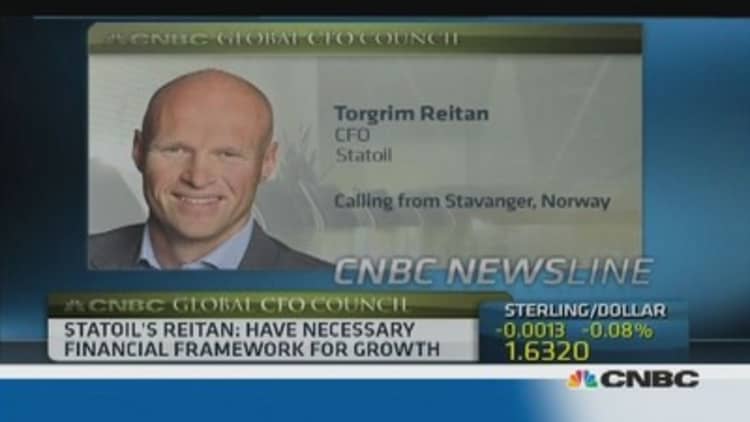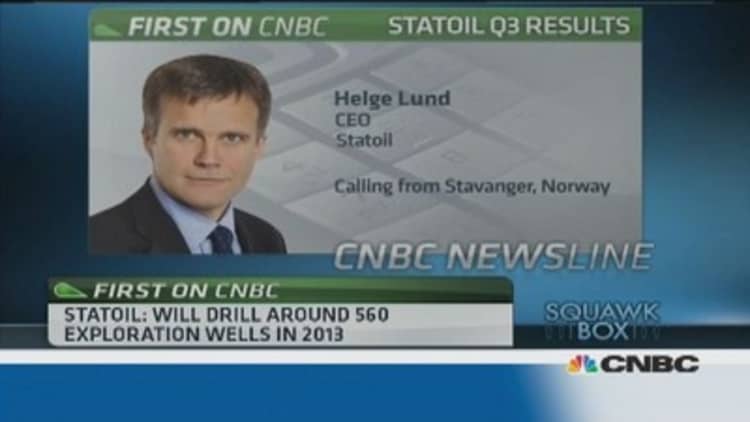
Investment in Iran's lucrative oil reserves could be a long term opportunity, according Torgrim Reitan, the chief financial officer at oil major Statoil, who refused to rule out a move back into the country after sanctions are lifted.
"We have no concrete plans to get back into that country. When that is said, if you take the long-term the world needs more energy, and the world needs more oil in the long term," he told CNBC Friday.
Iran - the world's fourth biggest oil-producer according to the International Energy Agency (IEA) - and six world powers reached a breakthrough agreement in November to moderate Tehran's nuclear program in exchange for limited sanctions relief.
(Read More: Iran puts out the welcome mat for Big Oil)
The country boldly pronounced itself back on the global stage on Wednesday. Speaking to reporters at the meeting of the Organization of the Petroleum Exporting Countries (OPEC), Iranian Oil Minister Bijan Namdar Zangeneh sent out an invite to oil majors across the globe.
He said that Statoil as well as other companies would be welcome to invest in Iran, according to Reuters, adding that he was already in talks with some of the companies. But analysts warn that Iran remains a tough sell for oil firms.
Trond Omdal, an equity analyst at Arctic Securities who previously worked for Statoil in Iran, told CNBC on Wednesday that project challenges included a lack of transparency, corruption and having to use local suppliers. He added that "buyback" terms were also often unfavorable. Buybacks occur when international oil companies invest billions upfront in projects in return for a pre-agreed share in oil and gas revenues.

(Read More: Saudi Arabia: Markets will handle Iran oil boost)
Statoil was found guilty of bribery and fined 20 million Norwegian kroner ($2.9 million) in 2004. Norway's investigator Okokrim found that consultancy fees were paid by Statoil to secure contracts in Iran. The fines have been issued and the case is legally settled, Okokrim states on its website.
Reitan said that he couldn't go into specifics when asked what should change in Iran in order for the firm to move back into the country.
"We monitor everything that goes on around the globe...currently our investment portfolio is very full, we focus on our business in Norway, the Gulf of Mexico, Angola, Canada, the Barents and Azerbaijan," he said.
(Read More: CFOs warn on froth in US stocks, tech, bitcoin)
Despite concerns, equity analysts did concede that there is significant potential for oil exploration in the country. Matthew Spivack, practice leader at emerging market advisory firm Frontier Strategy Group believes that the recent Iran nuclear deal is creating a "buzz" among senior executives at Western oil companies and other multinationals.
"From a long-term perspective, Iran is not a market that oil majors can afford to ignore. In the short term, there would be a significant upfront investment, given the deteriorating state of Iran's oil infrastructure. And Iran's business environment will be difficult for companies to navigate," he said.
"But significant challenges exist in other attractive oil markets such as East Africa. This isn't precluding the push for investment but it factors into project timelines and the cost of doing business."
— CNBC.com's Matt Clinch. Follow him on Twitter @mattclinch81






